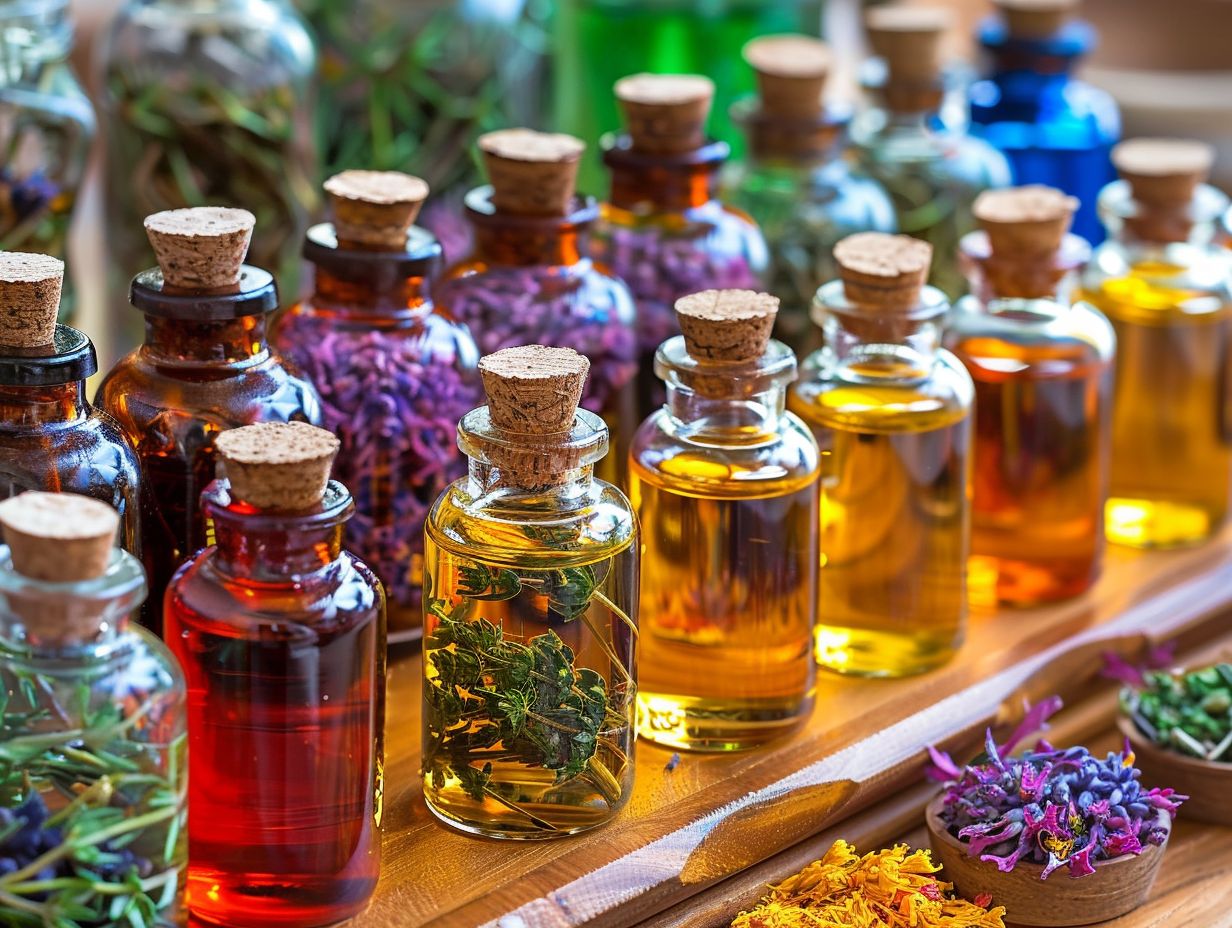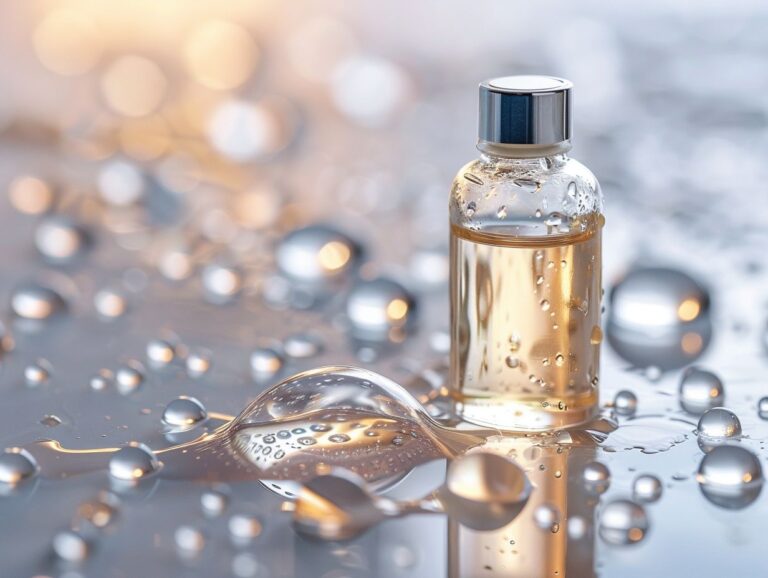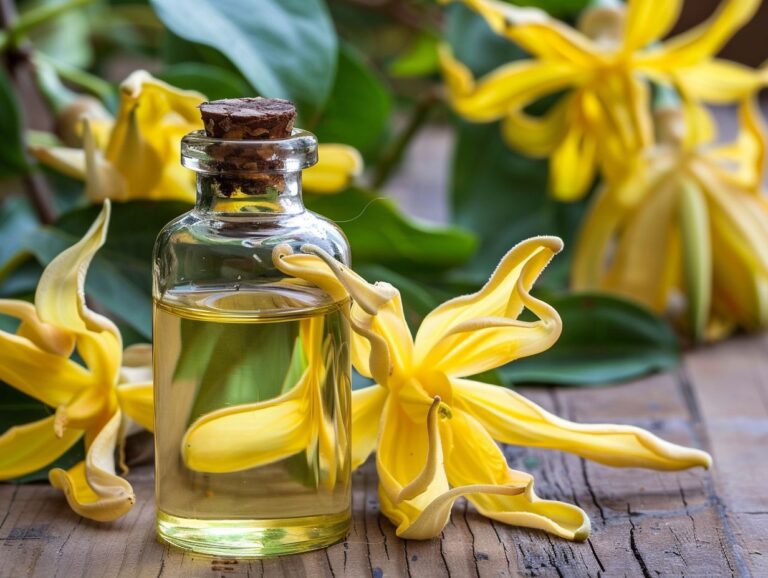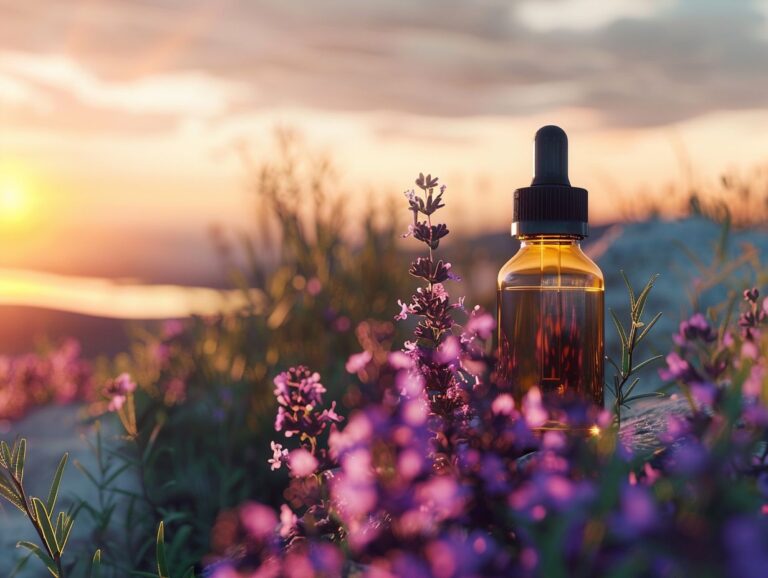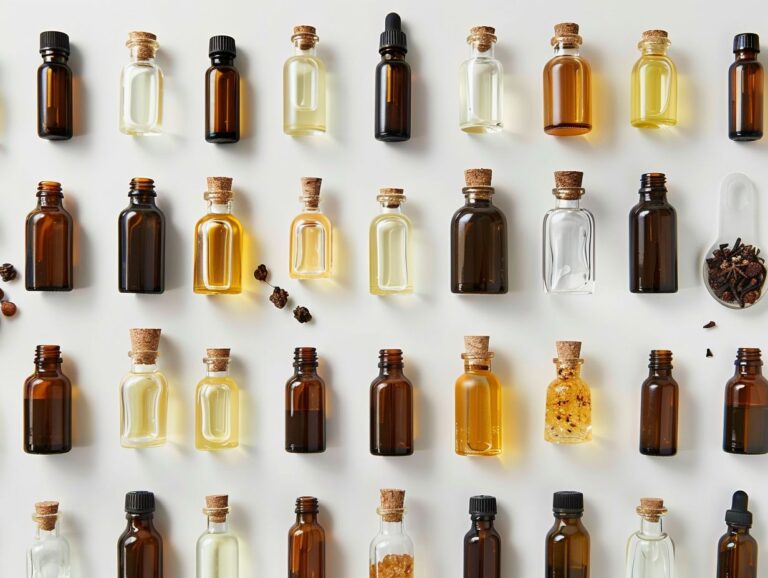What Are Essential Oils Wikipedia
Curious about essential oils? Wondering about their main components, how they’re made, and their different types? Interested in their uses, benefits, and potential side effects? Learn more about essential oils here.
This article covers it all! From discussing the extraction methods to exploring their applications in skincare and aromatherapy, we’ll also delve into the safety precautions and recommended dilution ratios.
If you’re looking to learn more about essential oils and how to use them safely, keep reading!
Key Takeaways:
What Are Essential Oils?
Essential oils are natural, aromatic compounds extracted from plants that capture the plant’s fragrance and flavor. They are highly concentrated oils that have been used for centuries in various cultures for their medicinal and therapeutic properties.
These oils are obtained through processes like distillation or cold pressing, preserving the essence of the plants from which they are extracted. Historically, essential oils have played a significant role in rituals, ceremonies, and traditional medicine practices across different civilizations.
The therapeutic benefits of essential oils are vast, with each oil having unique properties that can address a variety of physical and emotional concerns. They can promote relaxation, enhance mood, soothe aches and pains, and even support overall well-being.
What Are the Main Components of Essential Oils?
The main components of essential oils are chemical compounds that are volatile in nature. These compounds are responsible for the unique fragrance and properties of each essential oil.
Some common volatile compounds found in essential oils include terpenes, phenols, alcohols, esters, and ketones. Terpenes are known for their uplifting and energizing properties, while phenols have antibacterial and antifungal qualities. Alcohols, such as geraniol and linalool, contribute to the floral scent of many essential oils. Esters, like linalyl acetate, provide a fruity aroma, and ketones, including camphor and carvone, offer a cooling sensation.
Understanding the composition of these volatile compounds is essential for blending oils to create desired effects. For example, the high concentration of linalool in lavender oil explains its calming and relaxing properties, whereas the presence of eucalyptol in eucalyptus oil accounts for its decongestant and invigorating qualities.
How Are Essential Oils Made?
Essential oils are typically made through the process of distillation, where steam is used to extract the oils from the plant material. Other methods include solvent extraction to obtain the concentrated oils.
During distillation, the plant material is placed in a still, and steam passes through it. The steam causes the essential oils to be released from the plant material. The steam and oil vapor mixture is then condensed back into liquid form, and the essential oil separates from the water, as oil and water do not mix. This method allows for the extraction of pure essential oils.
In contrast, solvent extraction involves using a solvent like hexane to extract the oils from the plant material. The solvent dissolves the oils, creating a concentrated solution. The solvent is then removed, leaving behind the essential oils. This method is often used for flowers that are delicate and cannot withstand the heat of distillation.
What Are the Different Extraction Methods for Essential Oils?
There are various extraction methods used in the production of essential oils, each with its own benefits and potential toxicities. It is crucial to understand the different methods to ensure the quality and safety of the final product.
One of the most common extraction techniques is steam distillation, where plant material is exposed to steam to release the aromatic compounds. This method is favored for its efficiency in extracting oils from delicate flowers and leaves while minimizing chemical alterations.
On the other hand, solvent extraction involves using solvents like hexane to dissolve essential oils from plant material, yielding a strong fragrance but posing potential health risks due to solvent residues. Hydrodistillation is another method that uses water instead of steam, offering a more gentle approach suitable for certain plant types.
What Are the Different Types of Essential Oils?
Essential oils come in various types, including citrus, herbal, spicy, woody, and floral varieties. Each type offers distinct fragrances and properties suited for different purposes.
-
Firstly, citrus oils like lemon, orange, and grapefruit are known for their refreshing, energizing scents that can uplift the mood and boost concentration. These oils are often used in aromatherapy to enhance mental clarity and invigorate the senses.
-
Secondly, herbal oils such as lavender, peppermint, and tea tree are prized for their calming and soothing effects. They are commonly used for relaxation, stress relief, and promoting better sleep.
-
Next, spicy oils like cinnamon, clove, and ginger have warm, stimulating aromas that are often used for their invigorating and grounding properties. These oils are popular in massage blends and diffuser recipes.
-
Woody oils such as cedarwood, sandalwood, and pine have earthy, grounding scents that are associated with stability and strength. They are frequently used in meditation practices and skincare products for their balancing effects.
-
Lastly, floral oils like rose, jasmine, and ylang-ylang exude sweet, floral scents that are often linked to romance and relaxation. These oils are used in perfumery, skincare, and emotional wellness practices for their luxurious and comforting aromas.
What Are the Uses of Essential Oils?
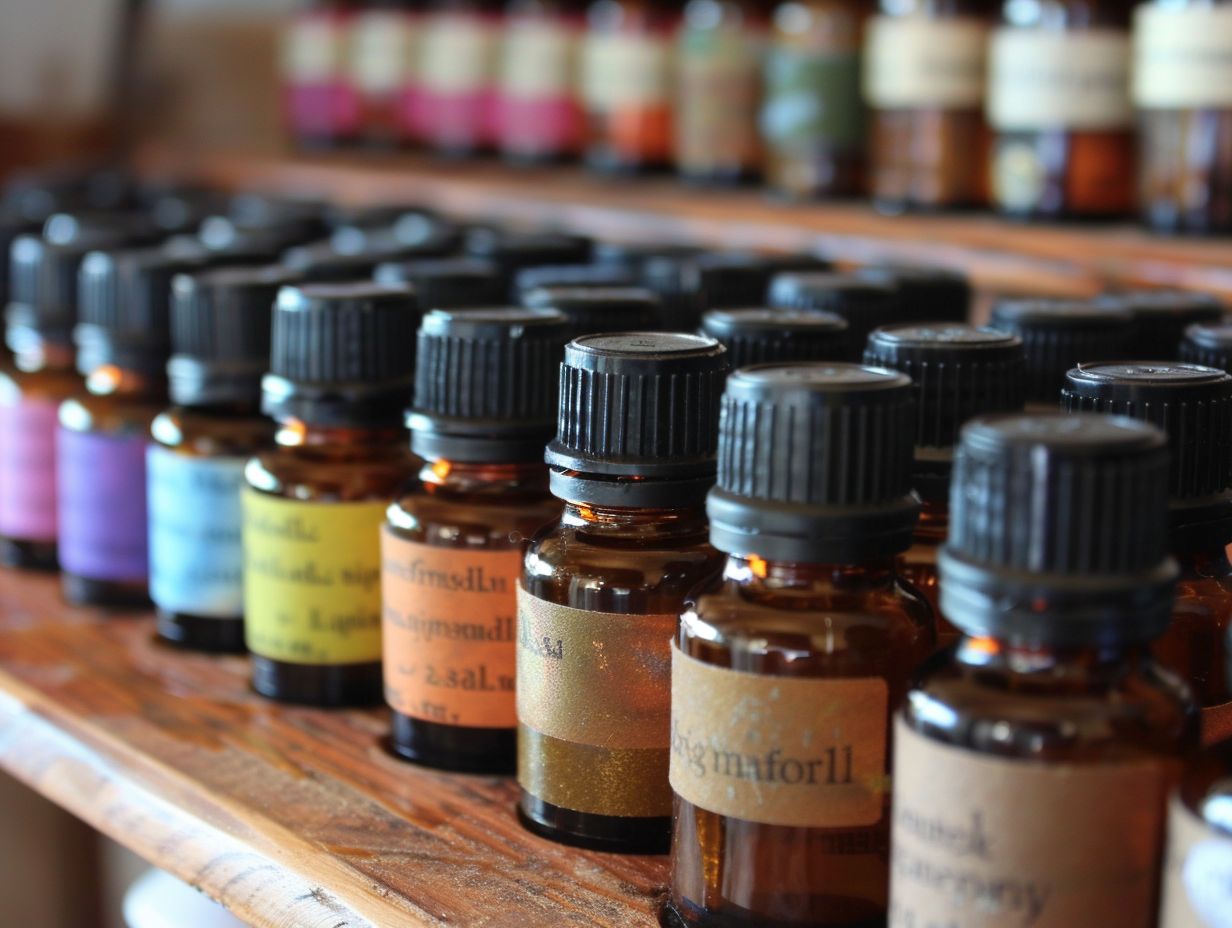
Essential oils are extracted from plants and contain concentrated compounds that offer a plethora of benefits. Whether used to alleviate symptoms of common ailments, such as headaches or insomnia, or incorporated into skincare routines for their nourishing and rejuvenating effects, these oils have been utilized for centuries. Their aromatic qualities can provide a sense of calm and relaxation, enhancing mental well-being. From lavender’s soothing properties to tea tree oil’s antiseptic qualities, each oil offers distinct advantages for health, skin, and overall wellness.
Are Essential Oils Safe to Use?
Safety is a crucial consideration when using essential oils due to their potency and potential toxicity. It is essential to take proper precautions and dilute oils to avoid adverse effects.
Essential oils are highly concentrated plant extracts that can cause skin irritation, allergic reactions, or even toxicity if used incorrectly. Some essential oils are more potent than others, so it is vital to research each oil’s specific properties and potential risks before use.
Precautions such as performing a patch test, using a carrier oil for dilution, and following recommended guidelines for inhalation or topical application can help minimize adverse reactions. Storing essential oils away from children and pets, ensuring proper ventilation during use, and seeking medical advice if experiencing any adverse effects are crucial safety measures to follow when incorporating essential oils into your routine.
What Are the Benefits of Using Essential Oils?
Using essential oils can offer a myriad of benefits, from promoting relaxation and reducing stress to providing relief from common ailments. The beneficial effects of essential oils have been recognized for their positive impact on well-being.
Essential oils are derived from plants and have been used for centuries in various cultures for their healing properties. The wide range of available essential oils allows individuals to choose blends that best suit their needs, whether it be for improving sleep quality, enhancing focus, or boosting immunity.
One of the key advantages of essential oils is their versatility as they can be used in different ways such as through inhalation, topical application, or even ingestion when appropriate.
Essential oils are known for their ability to uplift mood, support emotional balance, and even aid in skin rejuvenation.
Can Essential Oils Be Used for Aromatherapy?
Essential oils are commonly utilized in aromatherapy, a form of alternative medicine that harnesses the aromatic properties of oils to promote physical and psychological well-being. Aromatherapy has gained popularity for its holistic approach to health.
Aromatherapy operates on the principle that specific scents can impact emotions, memory, and even physical health. Different essential oils are used to target various issues, such as lavender for relaxation or peppermint for headaches. These natural oils are extracted from plants and carry the essence of their botanical sources.
One of the key benefits of aromatherapy is its ability to reduce stress and anxiety, enhance relaxation, improve sleep quality, and even alleviate certain physical ailments. Through inhalation or topical application, essential oils can have a powerful effect on the body and mind.
Can Essential Oils Be Used for Skincare?
Essential oils are increasingly incorporated into skincare routines due to their beneficial properties for the skin. These oils can help address various skin concerns and promote overall skin health.
One of the key benefits of essential oils in skincare is their ability to soothe and nourish the skin, contributing to a radiant and healthy complexion. Different oils possess unique properties that can target specific skin issues, such as acne, dryness, or inflammation. For example, tea tree oil is known for its antibacterial properties, making it effective in combating acne-causing bacteria. Lavender oil, on the other hand, is renowned for its calming effects, ideal for sensitive or irritated skin.
What Are the Potential Side Effects of Essential Oils?
While essential oils offer numerous benefits, they can also lead to potential side effects, with allergic reactions being a primary concern. It is essential to be aware of these risks before using essential oils.
Essential oils are highly concentrated extracts from various plants, and as such, they may cause adverse reactions in some individuals. Allergic reactions can manifest as skin irritation, redness, itching, or even respiratory issues in extreme cases. It is crucial to understand that each person’s sensitivity to essential oils can vary, and what may work well for one individual could trigger a negative response in another.
Before incorporating a new essential oil into your routine, it is strongly recommended to perform a patch test. This involves applying a diluted form of the essential oil to a small area of skin and monitoring for any adverse reactions over the next 24 hours. This simple step can help identify any potential sensitivities and prevent more significant allergic reactions.
Can Essential Oils Cause Allergic Reactions?
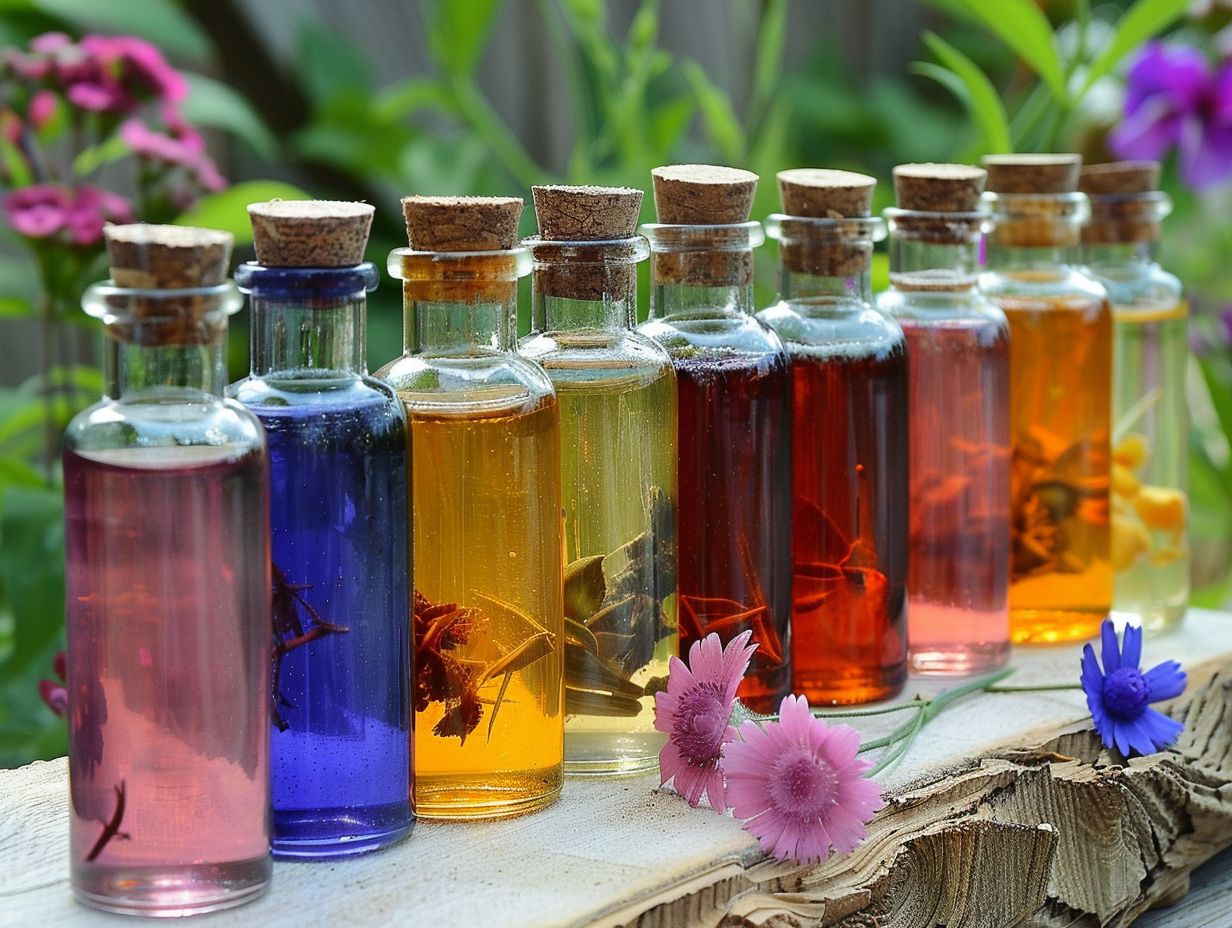
Allergic reactions to essential oils can occur in some individuals, manifesting as skin irritation, rashes, or respiratory issues. It is crucial to perform a patch test before using any new essential oil to mitigate the risk of allergic responses.
Allergic reactions to essential oils are often triggered by the potent compounds present in these concentrated extracts derived from plants. Symptoms of such reactions can vary from mild itching and redness to more severe manifestations like hives, swelling, or even difficulty breathing.
Factors that can increase the likelihood of experiencing an allergic response include a history of skin sensitivity, asthma, or other existing allergies. Prolonged or excessive exposure to certain essential oils can also heighten the risk of adverse reactions.
To minimize the chances of allergic reactions, it is advisable to dilute essential oils before applying them topically, especially on sensitive skin areas. Using high-quality, pure essential oils sourced from reputable suppliers can help reduce the risk of encountering impurities that might trigger allergies.
Can Essential Oils Interact with Medications?
Essential oils have the potential to interact with certain medications, affecting their efficacy or causing adverse effects. It is essential to consult a healthcare professional before using essential oils alongside medications.
Some essential oils can interfere with the way medications are metabolized in the body, leading to unexpected reactions. For example, citrus oils like grapefruit can inhibit enzymes responsible for drug metabolism, potentially increasing medication levels in the bloodstream to dangerous levels. Conversely, other oils like lavender or peppermint may have a calming effect that could complement certain medications. By seeking guidance from a healthcare provider, one can ensure safe and effective use of essential oils in conjunction with medications.
How to Use Essential Oils Safely?
Using essential oils safely involves following specific dilution ratios to ensure proper application and minimizing the risk of adverse reactions. Taking necessary precautions is essential to safeguard against potential hazards.
Regarding diluting essential oils, a common ratio is 2-3 drops of essential oil per teaspoon of carrier oil. Some oils may require higher dilution rates, so it’s crucial to research individual oils before use. Application methods include diffusion, topical application, and inhalation, each with its own benefits and considerations.
Ensuring proper dilution ratios and testing on a small patch of skin before widespread use can help prevent skin irritation or sensitivities. Remember to store oils properly, out of reach of children and pets, and always consult a healthcare professional before using essential oils, especially during pregnancy or illness.
What Are the Recommended Dilution Ratios for Essential Oils?
The recommended dilution ratios for essential oils vary depending on the specific oil and intended use. Proper dilution ensures the oils are applied safely and effectively for desired results.
Regarding diluting essential oils, it’s crucial to follow the guidelines to avoid adverse skin reactions or other potential risks. For instance, lavender oil is known for its versatility and gentle nature, making it suitable for direct skin application without much dilution. Whereas, cinnamon bark oil is a potent oil that should always be heavily diluted before use, considering its high risk of skin irritation.
Depending on the intended use, such as topical application, aromatherapy, or household cleaning, essential oil dilution ratios can vary. For a massage blend, a lower dilution ratio of around 2-3% is generally recommended, while for a cleaning spray, a higher dilution ratio may be necessary for effectiveness.
What Are the Precautions to Take When Using Essential Oils?
When using essential oils, it is essential to take certain precautions to avoid adverse effects or mishaps. These precautions include proper storage, handling, and application techniques to ensure safety and efficacy.
Storing essential oils correctly is vital for maintaining their potency and quality. They should be kept in dark glass bottles away from direct sunlight and heat, as exposure to light and heat can degrade the oils. Ensure the bottles are tightly sealed to prevent evaporation and oxidation. When handling essential oils, always use a dropper or a clean cotton swab to prevent contamination.
Proper application is crucial as well; dilute oils before applying them to the skin to avoid irritation, and perform a patch test to check for any allergic reactions before widespread use.
Frequently Asked Questions
What are essential oils?
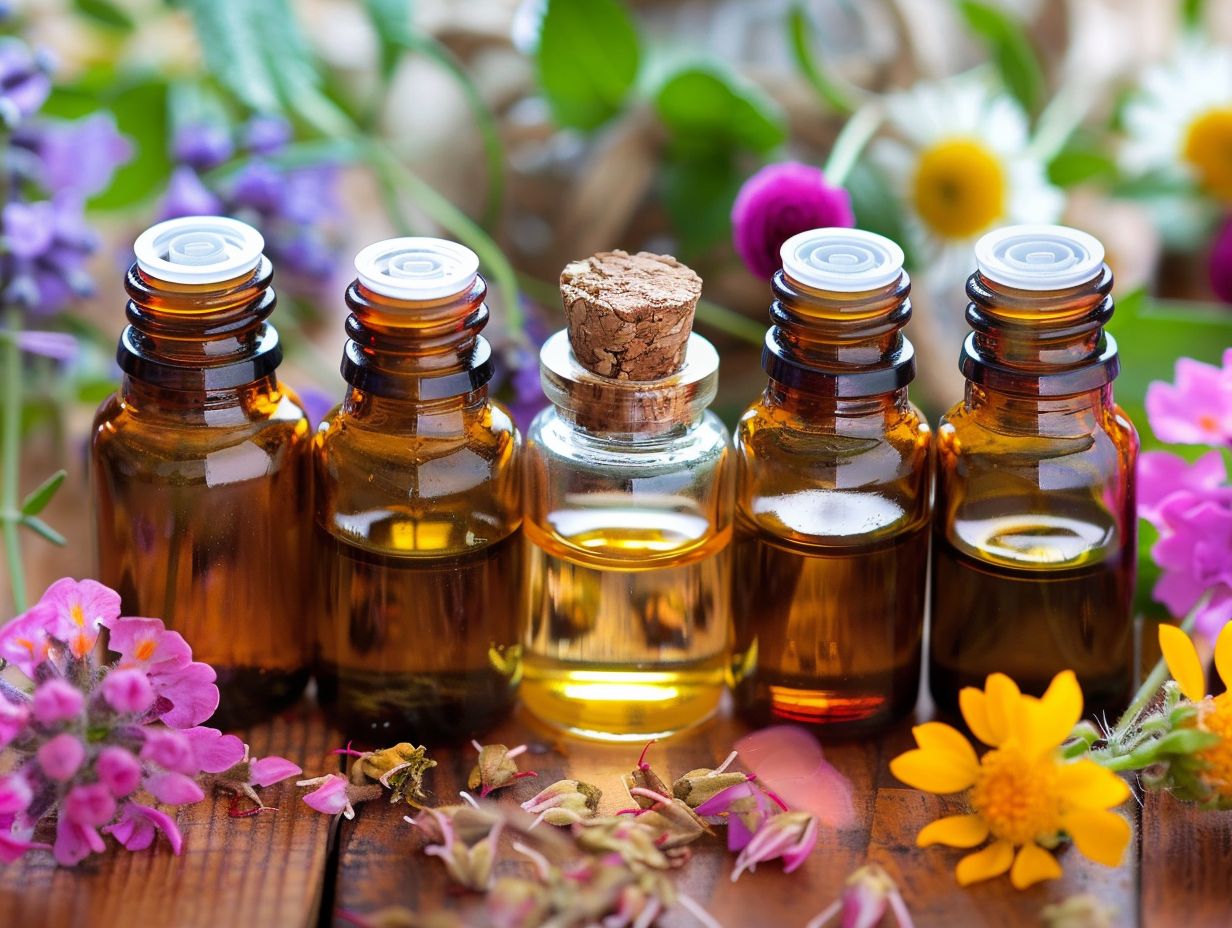
How are essential oils made?
Essential oils are typically made through a process of steam distillation, where steam is passed through the plant material to extract the oils. Some oils, such as citrus oils, are extracted through cold pressing, where the oil is squeezed out of the fruit or peel.
What are the uses of essential oils?
Essential oils have numerous uses, including aromatherapy, natural cleaning and disinfecting, and as a natural remedy for various health concerns. They are also commonly used in beauty and skincare products for their nourishing and rejuvenating properties.
Are essential oils safe to use?
When used properly, essential oils are generally safe for most people. However, it is important to follow proper dilution guidelines and consult a healthcare professional before using certain oils, especially if pregnant, breastfeeding, or have any medical conditions.
What are the benefits of using essential oils?
The benefits of essential oils vary depending on the specific oil used, but some common benefits include relaxation and stress relief, improved sleep, pain relief, and supporting overall wellness. They can also have antibacterial and antiviral properties.
Can essential oils be ingested?
While some companies may claim that their essential oils can be ingested, it is generally not recommended. Essential oils are highly concentrated and can be toxic if ingested in large quantities. It is best to stick to using them topically or through inhalation.

